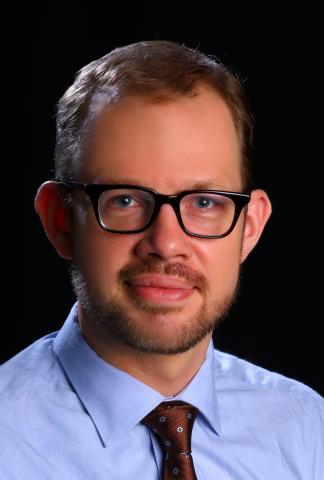FSU Social Work Scholar Leads Anthropology-Social Work Research Group

Assistant Professor John Mathias has a unique approach to social work. At the FSU College of Social Work, he uses research approaches from both anthropology and social work to address his research areas of interest. Dr. Mathias earned his doctoral degree from the University of Michigan where he was able to combine these two passions. He realized that many people, including social work researchers, were not aware of how anthropology and social work could be brought together, so he began reaching out to other scholars from his doctoral program and his network of anthropology-social work researchers to form a group of scholars interested in these two fields.
The group, named Scholars Across Anthropology and Social Work (SASW) first met during the 2016 Society for Social Work Research (SSWR) annual conference and has now formed a SSWR special interest group. They also hold regular online workshops where members share papers and provide each other feedback. Gradually, they have institutionalized, enstating Dr. Mathias as chair alongside colleagues Dr. Tam Perry (Wayne State University, Dr. Matthew Chin (Fordham University), and Dr. Lauren Gulbas (The University of Texas at Austin).
According to SASW’s mission statement, the organization aims to integrate social work and anthropology by:
- Developing knowledge at the intersections of these fields;
- Fostering greater dialogue among social workers and anthropologists; and,
- Facilitating outreach and mentorship between scholars at all stages of their careers.
“There are things that anthropology does well that can contribute to social work, and there are things social work does well that can contribute to anthropology,” Dr. Mathias remarked. “There is a lot of overlap, a lot of issues and social problems that social work researchers and anthropologists both study.”
Dr. Mathias sees the integration of these fields as a complementary relationship, one in which the two fields can aid and support the research of one another. He explained that social work researchers have increased their use of qualitative approaches to research like ethnography, which has its origins in anthropology. He also argues that common interest in differences of culture and societal backgrounds provides a lot of intersection between the two fields.
“Anthropology has been working internationally as a social science and is arguably the most international of the social sciences,” Mathias noted. “Social work has been internationalizing and dealing with the challenges of working cross-culturally for some time. Anthropology has a lot to offer social work in these areas.”
He also added that anthropologists have been increasingly interested in engaging with and contributing to the communities they study as well as with studying social issues that are of broader public concern. One example is a grant project Dr. Mathias is currently involved in, working with archaeologists and geologists, to organize a community-engaged study with the Houma, an indigenous group living on the coastal islands and regions of Louisiana. The project would examine how the Houma are maintaining cultural continuity as a tribe during times of major disruption due to climate change that may soon make the region uninhabitable.
“The archaeologists and geologists can look at the deep history of how the Houma moved and migrated at other times or how their ancestors migrated based on environmental pressures,” Mathias explained. “We also want to look at how American colonialism and political forces from the nineteenth century to the present day have affected tribal identity and traditions. Working collaboratively with the tribe, we hope to not only understand those things but also develop resources and insights that will be valuable to them in the context of the current environmental crisis.”
Dr. Mathias noted that one of the most exciting things about SASW has been learning about all of the different ways people are combining the fields of anthropology and social work. This has informed his own research on an international, national, and local level. SASW now boasts nearly 100 members across the United States and will continue to grow as the body of collaborative and interconnected research of social work, anthropology, and the other social sciences continue to grow.
To learn more about SASW: visit https://www.anthropologyandsocialwork.org/
